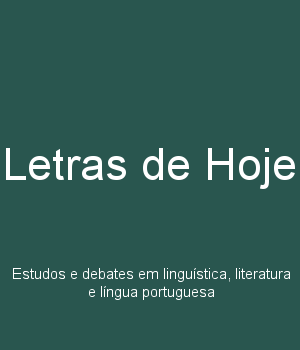Abstract:
Through the analysis of the novels of Ricardo Lísias and its self-critical production, this work intends to understand some relationships between the self-fiction literature and the popularization of the subject author immersed in the media universe. Starting from a literature review that conceptualizes the objects herein bounded and an earlier assessment of the literary production of young Brazilian writers selected by Granta magazine in 2012, we strengthened our focus on the novelist's movement toward the writing itself and self-reference. Pursuing this aim, we analyzed and contextualized the form of writing named autofiction, especially with regard to the similarities between instances of the narrator and the author and between biographema and fiction (FIGUEIREDO, 2013FIGUEIREDO, Eurídice. Mulheres no espelho: autobiografia, ficção, autoficção. Rio de Janeiro: Eduerj, 2013.; KLINGER, 2012KLINGER, Diana. Escritas de si, escritas do outro: o retorno do autor e a virada etnográfica. Rio de Janeiro: 7 Letras, 2012.). We also evoked Sociology and Media Studies to characterize the society of which emerges the corpus of this study (LIPOVESTKY, 2004LIPOVETSKY, Gilles. Os tempos hipermodernos. São Paulo: Barcarolla, 2004.; SANTAELLA, 2012). From these premises, we investigated the literary works – Céu dos suicidas (Heaven suicide, 2012), Divórcio (Divorce, 2013) and Delegado Tobias (Tobias, the police chief, 2014) – and the media narratives of Ricardo Lísias and finally we identified his advertising strategies.
Keywords:
Self-ficction; Contemporary literature; Hypermodernity; Ricardo Lísias
